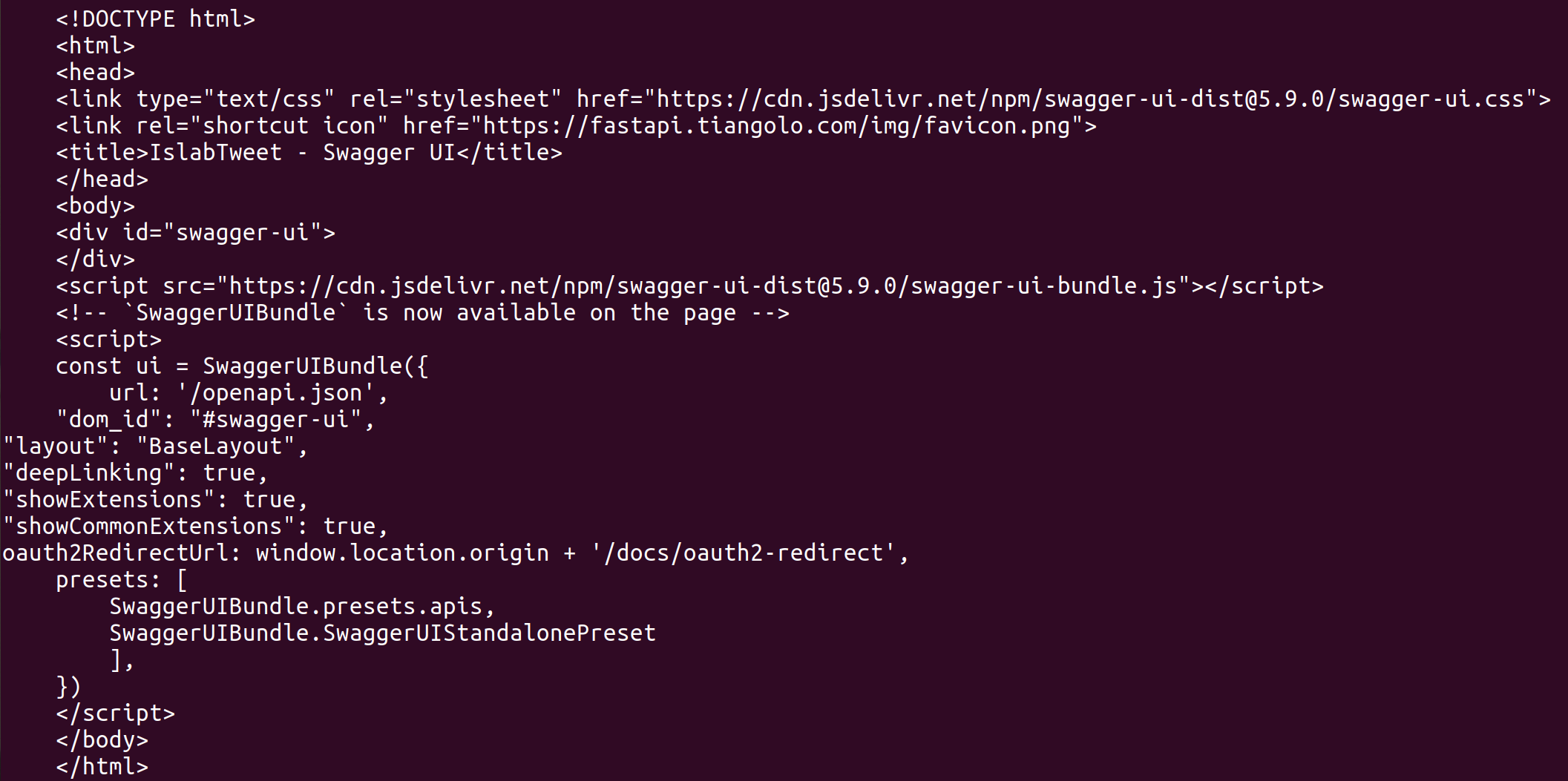I deploy a FastAPI service with docker (see my docker-compose.yml and app).
My service directory gets filled with files index.html, index.html.1, index.html.2,… that all contain

They seem to be generated any time the docker healthcheck pings the service.
How can I get rid of these?
PS: I had to put a screenshot, because Lemmy stripped my HTML in the code quote.
In your
docker-compose.ymlfile, your healthcheck forfastapiuses wget, which saves the file to disk by default. Add--spiderto make it behave correctly. Yournginxservice has the correct command.This is a FastAPI feature - Autogenerated documentation using Swagger.
You can turn it off by setting
docs_url=NoneIn your linked main.py:
app = FastAPI( title="IslabTweet", description=__doc__, docs_url="/", # change this to None to disable the docs version=VERSION, )Hope this helps!
That’s weird, I have never noticed any kind of .html files generation when accessing the docs and I have worked with F.Api for some time now, also can’t seem to find ang mention of this generation in the docs (that it actually writes files).
Also isn’t the default doc path
/docs(/redoc)Ok, that was stupid. Doing healthcheck with wget, does what wget does: it downloads the result. I had to add --spider to stop doing that
wget -nv --spider http://localhost:8000 || exit 1usually I would use just curl for hc
To me it depends on the base image. Some don’t have curl, but have wget. I would go with the flow instead of installing it myself. Especially if I can get away with not having to add more layers for an image of my own and/or using the same command for all containers
The default is
/docsWell, I do need OpenAPI (Swagger). What I don’t need is the generation of thousands of equal static files. Out of all these generated files, index.html would’ve been enough and I don’t need index.html.1, etc.




